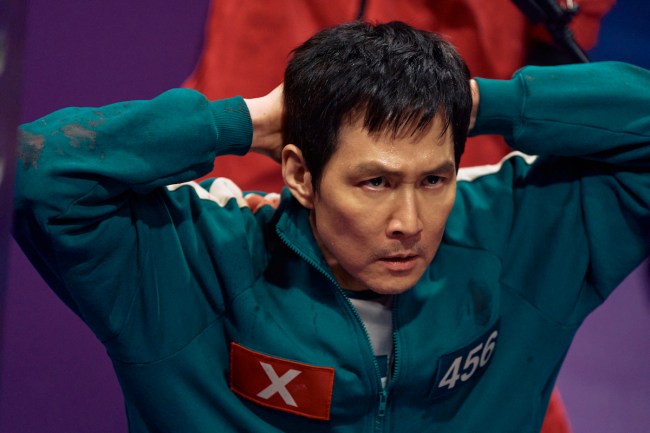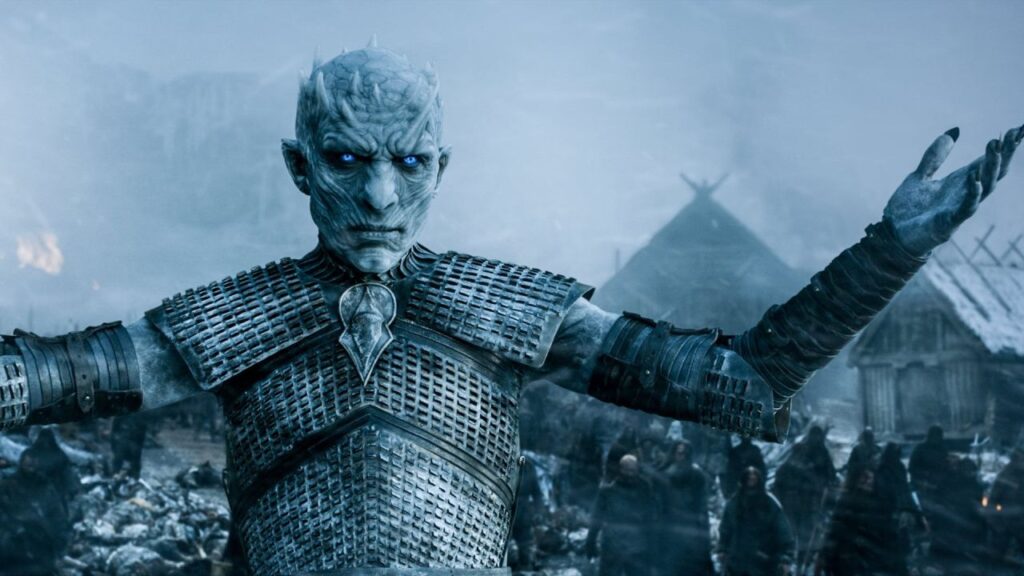For a series credited with starting an international TV revolution, “Squid Game” Season 2 sure feels like the standard sequel to a Hollywood blockbuster. The story mirrors the original, following a fresh batch of desperate have-nots competing in elementary school games with a sizable fortune for the winners and pitiless execution for the losers. Season 2 also stars the same lead character — or characters, really, as Gi-hun (Lee Jung-jae) guides the A-plot inside the game, and Jun-ho (Wi Ha-joon) drives the B-plot behind the scenes. Creator Hwang Dong-hyuk is also back, writing and directing every episode, and the already-striking production is infused with the bigger, bolder style that tends to come with extra resources.
Much of the overlap is an inevitable consequence of following up a global sensation that didn’t demand a follow-up (hey, you gotta give the people what they want), but there’s fun to be had among the tiring repetition and elongated story arcs — Season 2 is more like half-a-season, complete with a cliffhanger ending. For anyone satisfied with the first competition, the seven new episodes are still likely to provide enough visceral entertainment or vicarious thrills to merit a return trip. Season 2 continues to capitalize on a premise that’s instinctively absorbing — who will win and who will lose, who will play with honor and who will debase themselves, who will we identify with and who will we vilify. The slightly trickier questions — the ones that last a little longer than the length of each game — are when and why: When does a character cross a line? Why do they cross it? And can we empathize with their justifications for doing so?
Where Season 1 thrived on discovery — not only the grand revelation of each new game, including their rules and customs, but also a sleeper hit that caught on by word of mouth rather than pre-release hype — Season 2 survives by knowing there’s less to discover. It leans on our anticipation and occasionally plays off of it, deploying a twist here and a turn there, but more often capably caters to our expectations. Plus, as a means for Hwang to correct some of the wealth inequality between creator and distributor — making a second season that echoes the first as his only recourse to see a sliver of what Netflix made off his original work — it’s, quite frankly, all the easier to enjoy.
That is, if enjoyment was ever on the table. “Squid Game” was never subtle, preferring to marry its outrage over capitalist-driven wealth inequality with physical violence as brutal and graphic as the painful drudgery of living paycheck to paycheck. Such carnage was understandably unpleasant for some viewers — even ones who sympathize with the series’ eat-the-rich attitude — and Season 2 continues to choose violence.
By now, perhaps you can tell, dear readers, it’s a bit tricky to talk about what happens in “Squid Game” Season 2 without spoiling what happens in “Squid Game” Season 2. The broader story so closely follows what came before, every slight alteration and minor development helps carries that much more consequence. So let’s stick to the basics: Picking up two years after Gi-hun abandoned his flight to Los Angeles where he’d reunite with his daughter, the sole survivor of the latest Squid Games isn’t living the life of a Korean billionaire. He’s lying low in a grungy hotel, plotting his revenge, and trying to find The Recruiter (Gong Yoo). He’s got a whole team scouring the subway for a tall, lanky, besuited man challenging down-on-their-luck strangers to one-on-one ddakji. For years, Gi-hun has come up empty, and for years, he keeps pouring more and more money into the search.
The money, of course, doesn’t matter to him. Gi-hun sees it as a curse — a reminder of all the lives lost out of greed and self-interest. He needs the cash to carry out his mission, but his antipathy toward the money (and what it could turn him into) mirrors his antipathy for the Squid Game, which has only grown since he won. “You don’t get it,” he says. “You couldn’t know what it was like to be in there, what I did to make it out. You don’t have any idea what the game’s really like.”
And yet, whether Gi-hun finds the Recruiter or not, there’s no doubt he’ll play the game again. Hwang does a fine job justifying Player 456 re-entering the arena, but he struggles to justify how Gi-hun goes about putting an end to these battle royales. Like a B-plot about finding the island, Gi-hun’s fierce convictions about the Squid Game come and go with the needs of “Squid Game” — viewers want to watch the games, and for a while, Gi-hun has to shut up and play.
Once he does, Season 2 falls into the familiar yet compelling patterns of its predecessor. The new players are shocked to learn of the life-or-death stakes and quickly divide into two groups: those that want to stay and keep competing, and those that want to cash out and leave. Further factions emerge from there, as people start playing the game within the Squid Game, forming pockets of friendships and alliances, real and fake. The new batch of broad archetypes — including a tight-knit mother and son, a secretly pregnant woman, and a bossy loudmouth former billionaire — also feature a few intriguing weirdos, like the runner-up on a rapping reality show named Thanos (with purple hair and fingernails painted to match the Infinity Stones), a bitcoin bro who went bust, and a snobby shaman.
For the most part, the new cast comes together seamlessly (in part because they settle into similar dynamics to Season 1’s crew), and Season 2 finds its best moments when it sits with these characters and their choices. We get a tantalizing peek into the lives of the guards, and the cockier, smarmier players not only make for risible villains, they also create a black-comic undercurrent the season can lean on when it needs a boost. Season 2 isn’t lighter — Gi-hun is still “in hell,” after all — but it is funnier, which makes its own peculiar sense. The games aren’t new anymore (which isn’t to say there aren’t new games), and the surroundings have become familiar — to us and our protagonist. (They have been given a nice polish, though — love the new floors!) So rather than try to top the intensity of not knowing what horror awaits behind every door, Season 2 laces its sense of doom with an “aw shucks’ inevitability that feels all-too-familiar as Americans gird themselves for 2025.
Yes, “Squid Game” Season 2 will undoubtedly spawn an obnoxious number of think pieces about various modern parallels, but it really doesn’t have anything to say it hasn’t already said in Season 1. Perhaps that will change when Season 3 hits (which, again, is more like Season 2’s second half), but for now, “Squid Game” is content to exist as instinctual entertainment.
If there’s a reason Season 2 exists beyond Netflix‘s fiduciary responsibility to milk a few more subscription dollars out of its biggest hit ever — a narrative reason, if you will — it’s in the conflict between players who resent their billionaire overlords and players who knowingly serve them. Early on, someone name-drops “The Matrix” rather bluntly, perhaps to better underline that, in this season, Neo/Gi-hun isn’t fighting against the Architect/Oh Il-nam (O Yeong-su), who created the Squid Game and Gi-hun defeated in Season 1. He’s fighting the Agent Smiths/Front Men who keep the games running. After all, at this point in society, it doesn’t matter how capitalism began. What matters is whether we can find a way out without losing ourselves, our lives, and each other.
Grade: B-
“Squid Game” Season 2 premieres Thursday, December 26 on Netflix. All seven episodes will be released at once.


